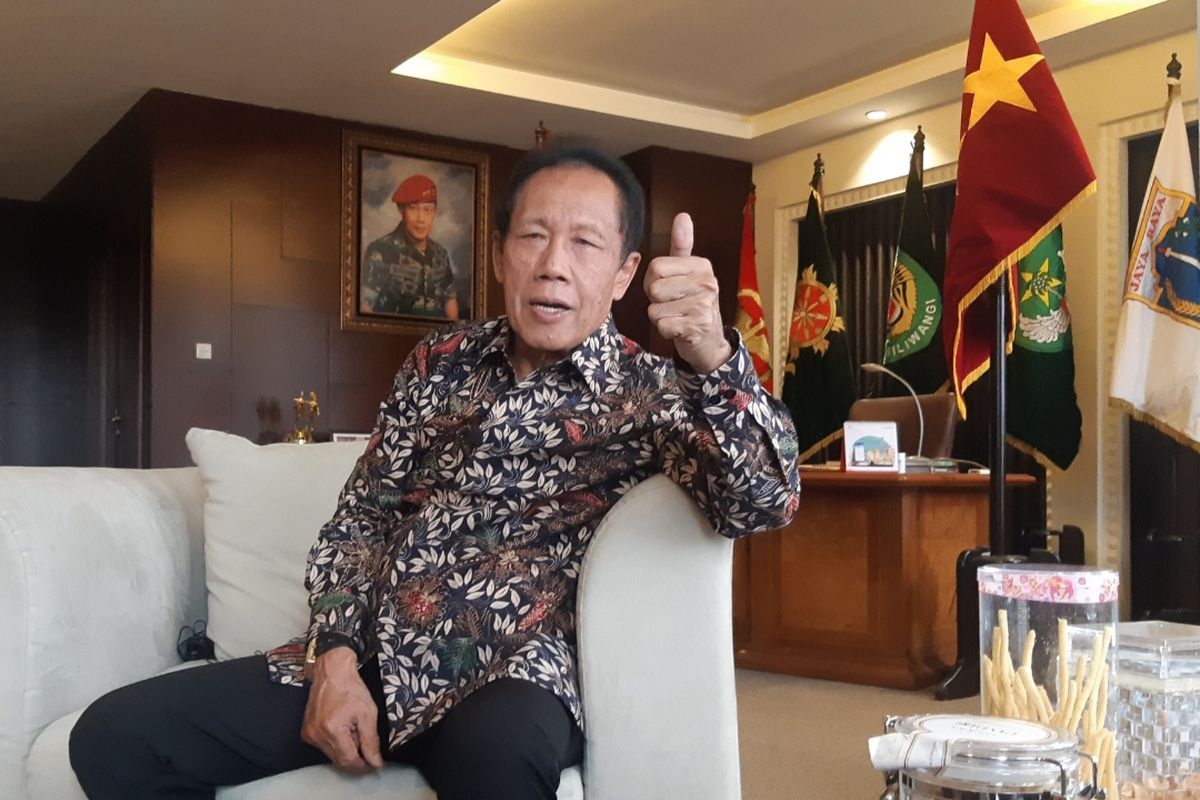By: Prabowo Subianto [taken from the book Military Leadership 1: Notes from the Experience of Lieutenant General TNI (Ret) Prabowo Subianto]
Governor Suryo cannot be separated from the events of November 10, 1945. He was even behind the decision to engage in the Battle of Surabaya, which is an important event in the history of the war involving the people of Indonesia. The fierce battle between the people of Surabaya, consisting of youth and Islamic students, and the British army, was a very heroic event in strengthening the independence of the Republic of Indonesia.
The major battle with the victorious country of World War II lasted for three weeks and claimed the lives of more than 16 thousand Indonesian fighters and caused 200 thousand civilians to flee. The severity of the battle is the reason why we commemorate the events of November 10 every year as Heroes’ Day.
The battle on November 10 was a result of the death of Brigadier Aubertin Walter Sothern Mallaby, who was shot in a gunfight between the Indonesian and British forces due to a misunderstanding on October 30, 1945. The British were greatly angered by the death of their war general and demanded that the perpetrators be captured.
However, a series of meetings between the Commander of the 5th Division of the British army, Major General Robert C. Mansergh, and the leadership of Surabaya ended in a stalemate.
Finally, after Friday prayers on November 9, 1949, the British army distributed an ultimatum pamphlet by air addressed to the leaders, fighters, and the entire population of Surabaya. The ultimatum included demands for all Indonesian national leaders to surrender; all armed individuals without the right to weapons to surrender their weapons; all women and children to leave the city and only go to Mojokerto and Sidoarjo via the highway.
If the deadline of 6 p.m. for the ultimatum was not met, the British army would destroy the entire city of Surabaya.
Of course, the ultimatum caused panic among the residents of Surabaya. However, the militant youth led by Bung Tomo, who had been resisting the British demands from the beginning, had already declared their readiness for war.
Meanwhile, Governor Suryo asked the people of Surabaya to remain calm as they awaited directions and orders from Jakarta. However, it turns out that the Central Government led by Bung Karno, left it entirely up to the people of Surabaya to decide what steps to take.
In this situation, Governor Suryo had to make an important decision. A decision that would determine the future of Surabaya, and even Indonesia. A decision that would show the world whether Indonesia is a great nation, a nation of fighters who are not afraid of anyone, including superpower countries like Britain, in defending the sovereignty of the country, or whether the nation would surrender before fighting. This important decision was in the hands of Governor Suryo.
Until almost midnight, after the deadline set by the British had passed, Governor Suryo finally announced this important decision to the people of Surabaya over the radio. His speech may not have been as fiery as Bung Tomo’s, but the short speech delivered calmly was full of energy, motivating everyone who heard it to be ready to defend the homeland to the last drop of blood.
Bung Tomo is indeed recognized as a revolutionary leader who mobilized and raised the spirits of the people, but Governor Suryo’s speech was equally heroic. In fact, the speech became the command for the first time to start this major war.
I can’t imagine how Governor Suryo felt when he was about to deliver his speech.
Imagine, Governor Suryo was not a soldier, not a member of the military. But he understood, he had a historical responsibility. He understood the duty of a leader. That a leader must be a knight, a leader must defend the honor of the nation. He represented his people. He has shown and set an example for future generations of how a leader makes decisions, how a leader defends the homeland.


![LEADERSHIP OF INDONESIAN NATIONAL LEADERS [RADEN MAS TUMENGGUNG ARIO SOERJO (GOVERNOR SURYO)] Gubernur-Soerjo.jpg](https://indoberita.biz/wp-content/uploads/2024/08/Gubernur-Soerjo.jpg)
![LEADERSHIP OF INDONESIAN NATIONAL LEADERS [MAJOR GENERAL TNI (RET.) SUHARIO PADMODIWIRYO (HARIO KECIK)] hario-kecik-_140819202026-673.jpg](https://indoberita.biz/wp-content/uploads/2024/09/hario-kecik-_140819202026-673.jpg)


![LEADERSHIP OF INDONESIAN NATIONAL LEADERS [SOETOMO (BUNG TOMO)] peristwa-7-oktober-bung-tomo-meninggal-saat-naik-haji-IWa7Ff3Jac.jpg](https://indoberita.biz/wp-content/uploads/2024/08/peristwa-7-oktober-bung-tomo-meninggal-saat-naik-haji-IWa7Ff3Jac.jpg)

